Somehow or other, I’ve encountered in articles discussions of or quotes from George Orwell’s 1984 two or three times in as many days. “When was the last time I read that?” I asked myself, quick to answer: “The first time I read it, which was in ninth or tenth grade.” In other words, thirty or so years ago. So on the way home from school today, I dropped into the local branch of the Greenville County library system and picked up a copy of the novel.
It somehow seemed ironic that I borrowed a book about ultimate and total control of a society on the day when thousands of kids around the country protested the perceived lack of gun control in the States. I say “perceived” not because I’m a card-carrying member of the NRA — which I am not — or am any kind of staunch opponent to gun control laws but because many of the perceptions I’ve heard from the teens protesting seem to have missed the point. Many haven’t, but a few have.
For instance, I heard on the radio coming home the other day an interview with a young lady from Chicago who wanted all guns banned because she was “scared of guns.” Growing up in the inner city, she’d witnessed gun violence firsthand, and she and her mother had once held a young man as he died from a gunshot wound. She wanted laws that would make it all but impossible to get guns. I wonder if anyone pointed out the likelihood that the guns used in inner city violence are obtained illegally, and thus no amount of legislation will stop that from happening.
On the other hand, it seems that many of the kids had very logical ideas: increased background checks, better cooperation between law enforcement to prevent such things from happening, more money for school counselors and psychologist to help find those kids before they pop.
So I came home and in the evening, read a bit of the novel. Within a few pages, when Winston goes into the apartment across the hall to help the woman who lives there with her clogged drain, he leaves thinking about “the look of helpless fright on the woman’s greyish face” because of how children were behaving: they’d been pretending to be Thought Police arresting Winston, accusing him of collaboration with the enemy, declaring that they knew he was committing Thought Crimes on a regular basis.
With those children, he thought, that wretched woman must lead a life of terror. Another year, two years, and they would be watching her night and day for symptoms of unorthodoxy. Nearly all children nowadays were horrible. What was worst of all was that by means of such organizations as the Spies they were systematically turned into ungovernable little savages, and yet this produced in them no tendency whatever to rebel against the discipline of the Party. On the contrary, they adored the Party and everything connected with it. The songs, the processions, the banners, the hiking, the drilling with dummy rifles, the yelling of slogans, the worship of Big Brother—it was all a sort of glorious game to them. All their ferocity was turned outwards, against the enemies of the State, against foreigners, traitors, saboteurs, thought-criminals. It was almost normal for people over thirty to be frightened of their own children. And with good reason, for hardly a week passed in which The Times did not carry a paragraph describing how some eavesdropping little sneak—’child hero’ was the phrase generally used—had overheard some compromising remark and denounced its parents to the Thought Police.
I read that and thought of the parent who emailed me because he was afraid that his child had missed a test in my class due to skipping class for the protest. “No,” I assured him, “I thought about the potential for many kids being absent for some part of that class and planned accordingly.” He mentioned that he would have been disappointed if his daughter had missed the test because of choosing the protest over school work. In other words, he expected X of his daughter and could express disappointment and presumably some kind of consequence for her actions — the exact opposite of the reality in Orwell’s novel.
I read that and thought about how I can teach my children what to think and believe, and that I have the freedom to teach them something that counters the prevailing narrative of the time. There’s a certain wonder in that freedom, but when you see little kids on documentaries doing a Nazi salute and using the N-word freely, it’s hard not to wonder where the limits on that might logically be, and how we could enforce those limits, and whether we would even want to try. I think the answer is obviously “No,” but how do we counteract that as a society? Or do we counteract it? Is America so free that we can raise bigots? Isn’t that an Orwellian Thought Crime until someone acts upon it?
I read that and thought about people who homeschool their kids. Some who choose that route do so because they’re afraid something like this is already happening, that kids are being brainwashed in the schools, being turned into evolution-believing, homosexuality-accepting, socialist-leaning moral relativists who will end up rejecting all the parents have tried to instill in them. They see 1984 as virtually fulfilled prophecy.
I read that and thought about what it would have been like to live in the Soviet Union in the height of thought-control there, when people could be denounced for anything or nothing, when people were arrested simply to fill a quota. (I’m getting this from Solzhenitsyn’s Gulag Archipelago, which I read probably twenty years ago — might be rusty on the details.) In such a society, one did indeed have to be careful around one’s children.
So it’s been a day punctuated with thoughts of potential disasters and real disasters, of potential fears and real fears. But far from depressing me, these thoughts have just lingered at the edges here and there, which is perhaps a good thing and bad at the same time. On the one hand, we can’t live our lives consumed with such thoughts lest we become nihilists, and that’s no way to be a parent. On the other hand, a seeming complacency breeds — what? Stagnation? And yet — and yet.
The kids played; the Boy tried to build; the dog behaved; the Girl took out compost without a single complaint; the duration of the battery in K’s new phone is improving daily, assuaging her worries. So in the immediate scope of things, it was a great day. Would that it were for more people.
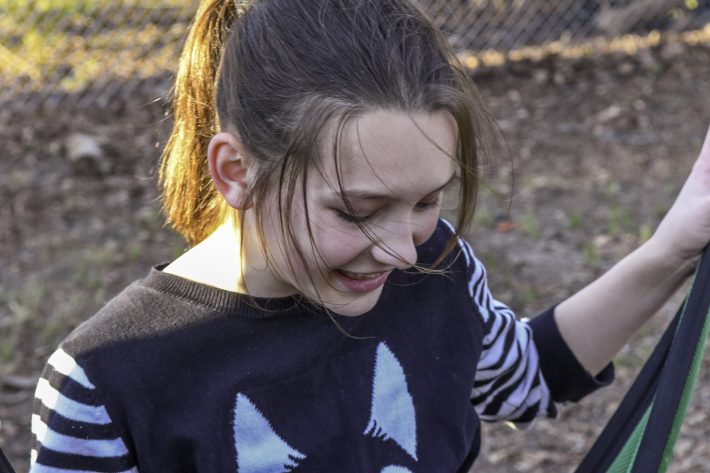
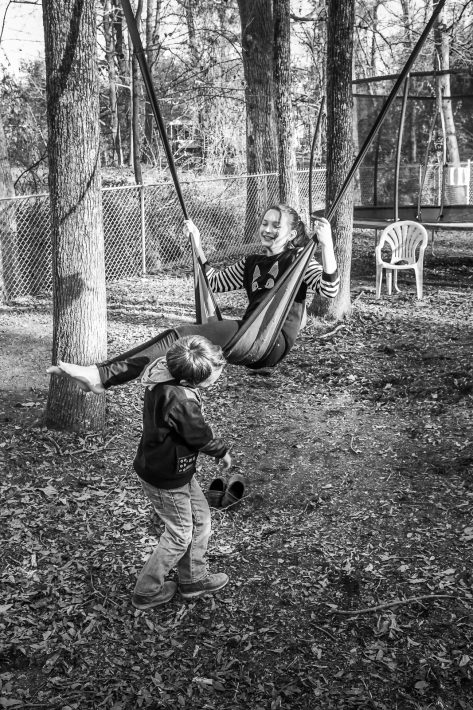
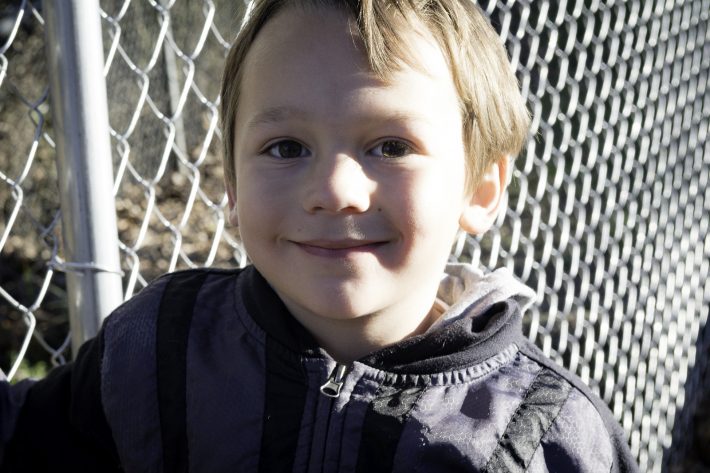
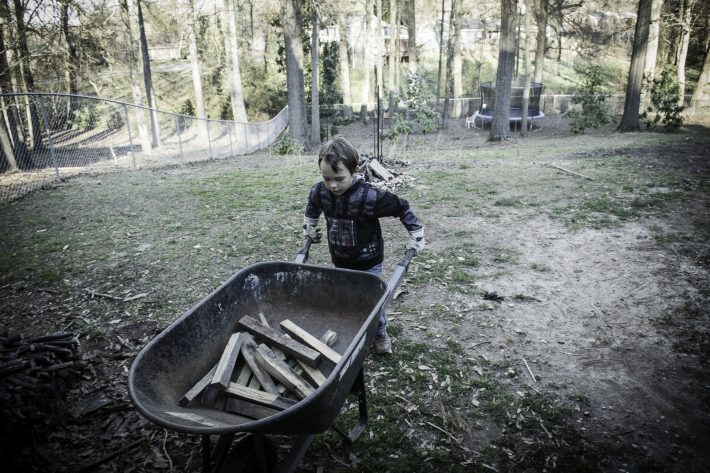

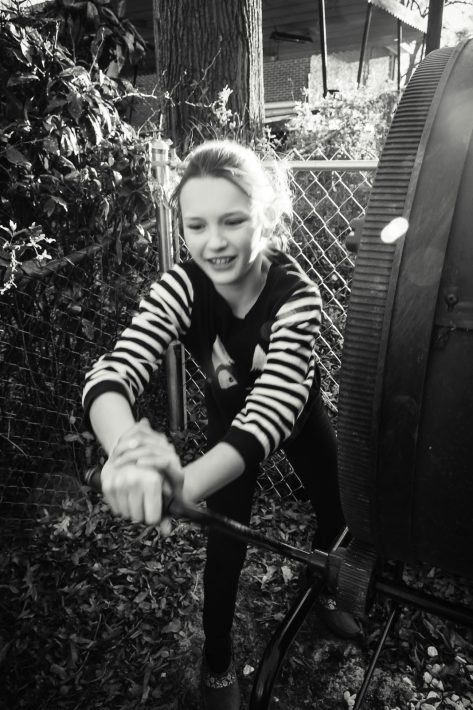
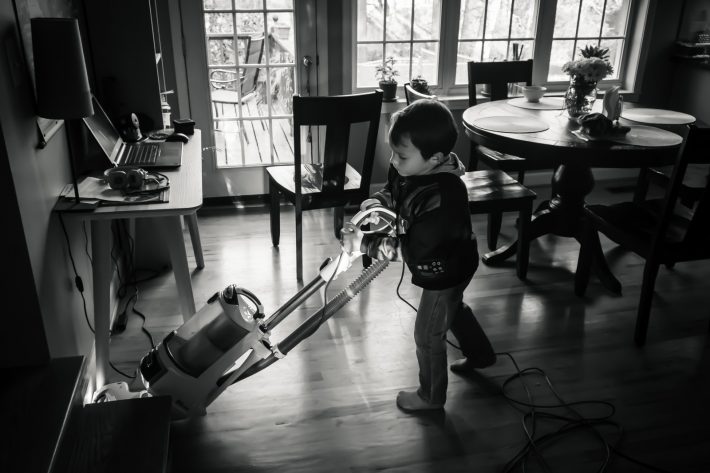
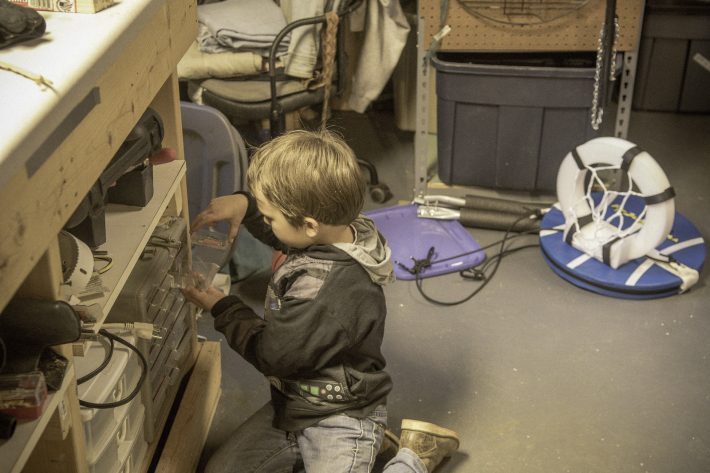

0 Comments